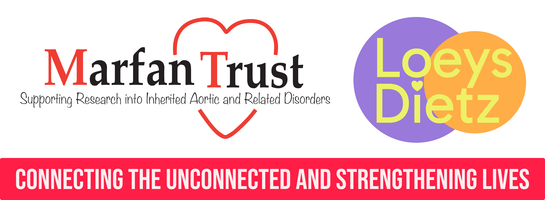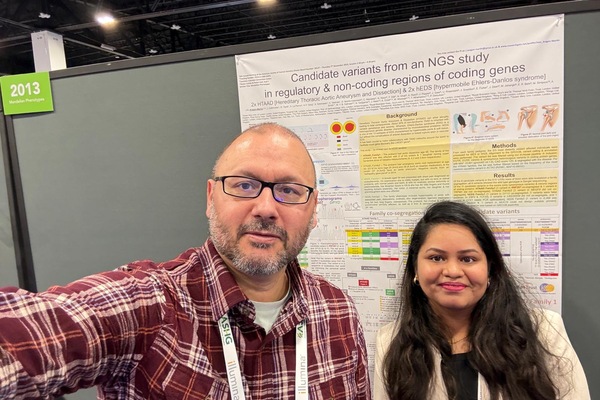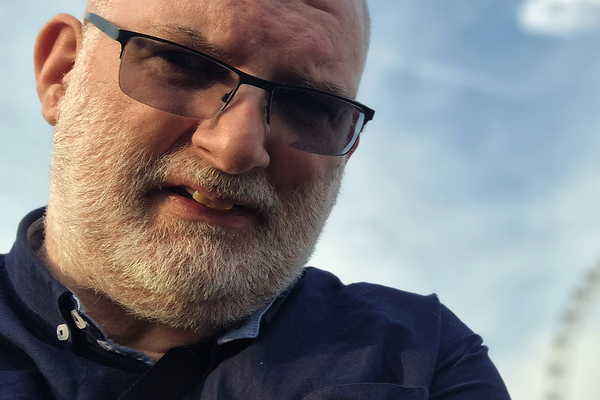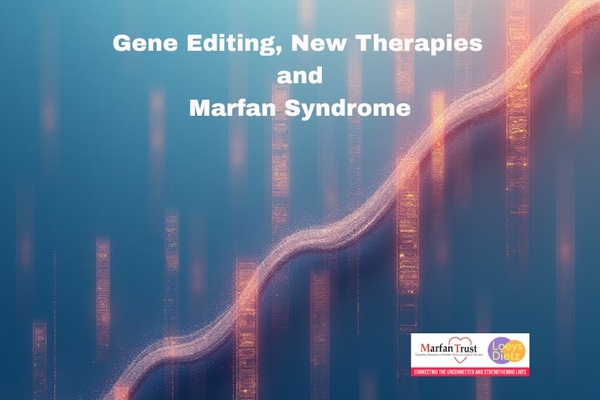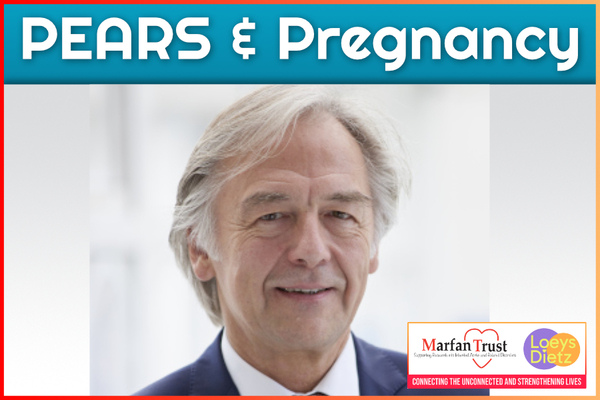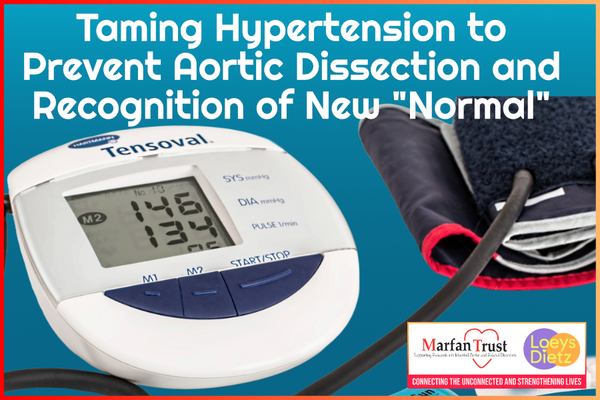Our research programme continues apace, as Dr Aragon-Martin explores new causative genes behind Hereditary Thoracic Aortic Aneurysm and Dissection (HTAAD), genotype-phenotype correlations in Marfan syndrome, dislocated lenses and more. Here is his update on activities in the Sonalee Laboratory.
I’m dividing my time between the William Harvey Research Institute at Queen Mary University of London, and the Institute of Ophthalmology.
William Harvey Research Institute
The Sonalee Laboratory maintains a valuable database of samples from UK families affected by Heritable Thoracic Aortic Aneurysms and Dissections (HTAAD). In several of these families, all the major known genes associated with HTAAD have been ruled out. Exploiting the latest technology, my MSc students and I are searching for novel genes that may play a role in the HTAAD pathway.
Genomic medicine in the UK is constantly evolving and the gene panel, known as R125, used to screen people suspected of having HTAAD (as well as Marfan and Loeys-Dietz syndromes) now tests for well over 30 genes. Our continued work at the William Harvey Research Institute aims to identify further genes that will contribute to this panel, potentially saving lives.
We have recently acquired new equipment that facilitates the sequencing of one entire genome in just one day and will vastly speed up our research. The PromethION P2 Soloallows scientists to sequence entire genomes or transcriptomes rapidly and at a lower cost. This is a fantastic coup for our lab and was made possible only through our supporters’ fundraising. Thank you!
With Msc student Chandana Veshala, I unveiled my research at the American Society of Human Genetics symposium in Denver. We showcased the results of our Next Generation Sequencing (NGS) study into the gene changes potentially responsible for HTAAD and Hypermobile Ehlers-Danlos Syndrome (hEDS). We pictured together, above
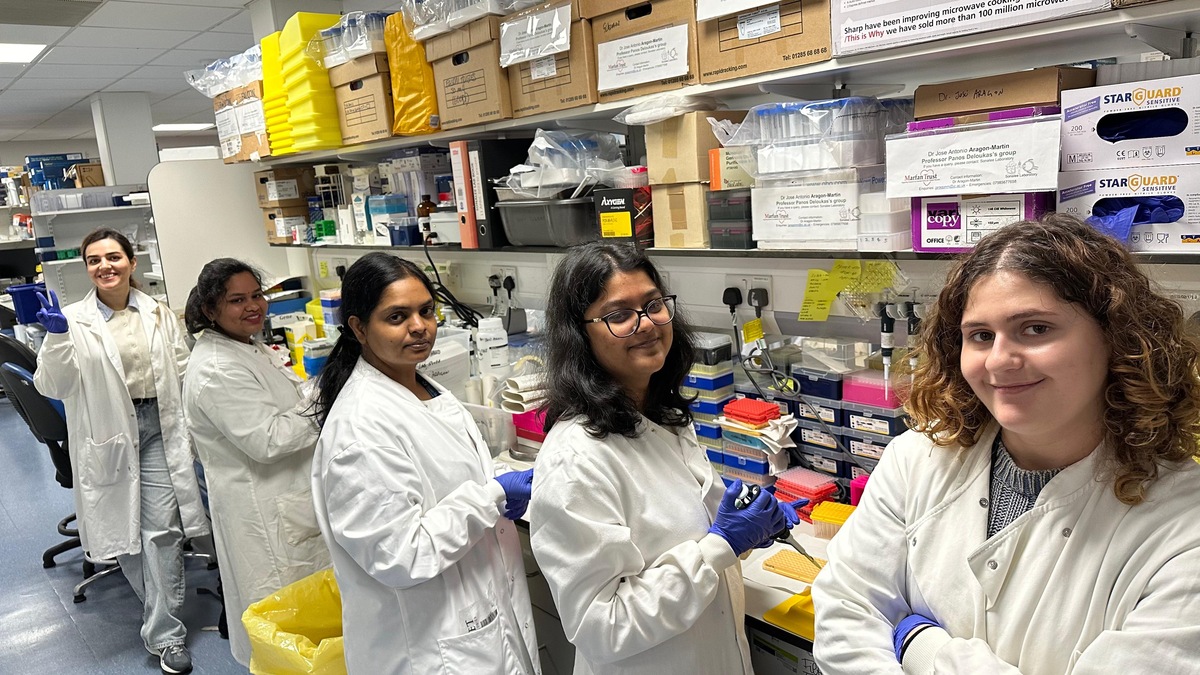
Chandana is one of four MSc students who have been analysing NGS (Next Generation Sequencing) data on HTAAD and hEDS (hypermobile Ehlers-Danlos syndrome) to find genetic biomarkers that might be causing these conditions. Here is a summary of their activity.
1. Mrs Jeyabharathi Jeyaraj Kathirvelan is studying the DNA pieces that do not belong to the production of the protein, also known as introns.
2. Ms Roshanak Fekri Yazdi is studying the DNA pieces that come before and after the genes and between genes.
3. Ms Srivarshini Govinda Srinivasan is studying large DNA pieces that can be seen as a problem when there is less or more of this type of DNA than expected, also known as CNV (Copy Number Variations).
4. Ms Chandana Veshala is studying large DNA pieces that can be seen as deletions, duplications, insertions, translocations, inversions, also known as SV (Structural Variants).
We continue to map gene changes causing the condition, onto the international gene map for Marfan syndrome. This helps us predict how a new mutation will affect a baby who has just been diagnosed.
[pictured from left to right: Roshanak, Chandana, Jeyabharathi, Srivarshini and Silvia la Penna
Institute of Ophthalmology – University College London
Over the last academic year (2023-2024), we supervised one UCL PhD student project to analyse NGS data on PCG (Primary Congenital Glaucoma) to find genetic biomarkers that might be causing this condition:
1. Dr Nicola Cronbach studied the DNA pieces that change the production of proteins, also known as indels and point mutations.
This connective tissue condition shares clinical features with Marfan syndrome (MFS) and isolated Ectopia Lentis, therefore, finding more about its genetic basis will allow us to better understand MFS.
Research Manuscript Publications and Dissemination of the Results
We are one of the authors in a review with one of our Ectopia Lentis (EL) collaborators, Dr Aman Chandra. Our article "Zonulopathies as Genetic Disorders of the Extracellular Matrix" has been published in Genes and is available online at the following links:
Website: https://www.mdpi.com/2073-4425/15/12/1632
PDF Version: https://www.mdpi.com/2073-4425/15/12/1632/pdf
